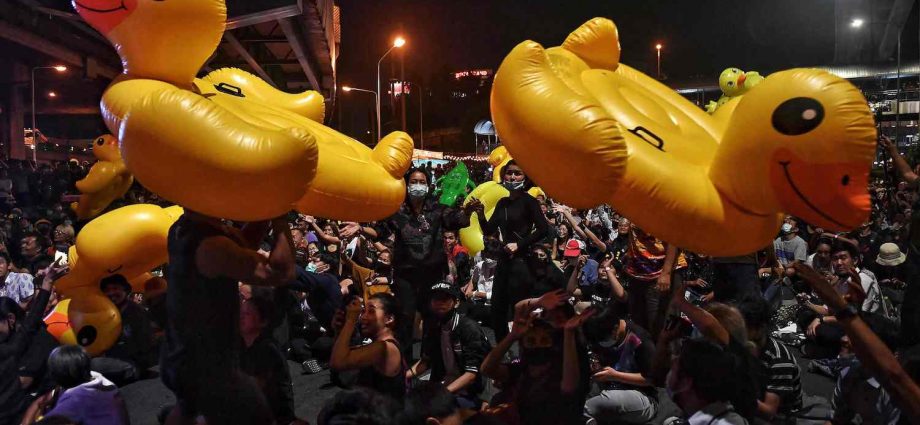Man jailed for two years under royal defamation law for selling satirical calendars online

A court has jailed a man for two years for selling satirical calendars featuring yellow rubber ducks that prosecutors said defamed the royal family.
The 2021 calendar featured a series of rubber ducks in poses that the Bangkok court ruled resembled His Majesty the King, violating Section 112 of the Criminal Code, the lese-majeste law, which can carry a sentence of up to 15 years in prison.
Narathorn Chotmankongsin, 26, was initially given a three-year prison term on Tuesday for selling the calendars on the popular pro-democracy Ratsadon Facebook page, according to Thai Lawyers for Human Rights (TLHR).
“But the sentence was commuted to two years without parole after the defendant gave testimony that was beneficial to the consideration,” said TLHR, a legal group that acts in many lese majeste cases.
The yellow bath toys became a symbol of the pro-democracy protest movement in 2020 after demonstrators used large inflatable ducks to shield themselves from police tear gas and water cannon.
Rubber-fowl-themed paraphernalia quickly came to dominate street marches, featuring on everything from hats to hair clips.
The use of the royal defamation law, has increased dramatically in recent years, with more than 200 people charged since 2020, according to TLHR.
Human Rights Watch said this week’s court decision “shows that Thai authorities are now trying to punish any activity they deem to be insulting the monarchy”.
“This case sends a message to all Thais, and to the rest of the world, that Thailand is moving further away from — not closer to — becoming a rights-respecting democracy,” said Elaine Pearson, the director of HRW Asia.

